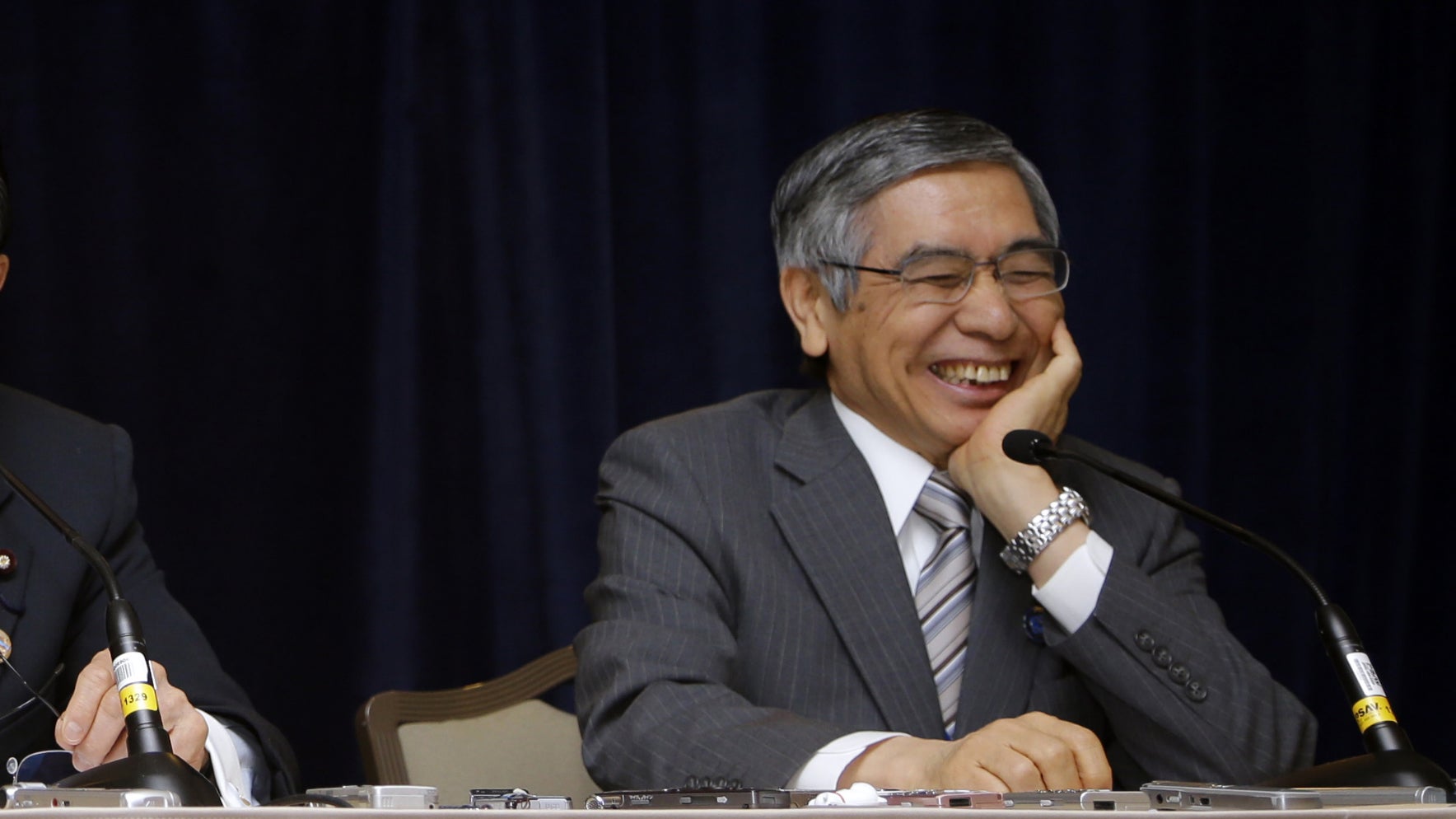To make Abenomics work, the Bank of Japan has to pull off a confidence trick
To many, the recipe for Abenomics, the economic policies championed by Japanese leader Shinzo Abe, seems to be three parts parts ballyhoo and four parts hooey. And not without reason. If breaking free of deflation is doable, how come Japan still hasn’t done it? And how come former Bank of Japan (BoJ) governor Masaaki Shirakawa failed?

To many, the recipe for Abenomics, the economic policies championed by Japanese leader Shinzo Abe, seems to be three parts parts ballyhoo and four parts hooey. And not without reason. If breaking free of deflation is doable, how come Japan still hasn’t done it? And how come former Bank of Japan (BoJ) governor Masaaki Shirakawa failed?
Probably because there was an egregious flaw in Shirakawa’s approach, as Paul Sheard, chief global economist at Standard & Poor’s, explained in a talk at the Japan Society in New York City today.
“The argument from Shirakawa was that the cause of deflation wasn’t monetary policy,” said Sheard. ”It was that real growth was falling, and that’s why you had deflation—that was the theory.”
And dismissing monetary factors—the only thing a central bank controls—set the BoJ up for failure, noted Sheard. The degree to which central banks are effective depends in large part on whether they can influence expectations. “If you believe a central bank doesn’t have the tools to address deflation, it’s quite natural to expect that it can’t,” he said. ”That becomes a self-fulfilling prophecy, and then the BoJ can say that it was right.”
Why new BoJ governor, Haruhiko Kuroda, might have a shot at defeating deflation is that when he issued a new prophecy of sorts—the April 4 announcement of dramatic changes to BoJ policy—he did so with unexpected force, said Nathan Sheets, Citi’s global head of international economics.
“What Kuroda is trying to do is to put a policy on the table that makes the Japanese public say, ‘Governor Kuroda is crazy—he’s unhinged. He’s doing whatever it takes,'” said Sheets. “And then they start to expect inflation.”
In their remarks, both Sheets and Sheard called Kuroda’s April 4 announcement his “Volcker moment,” referring to former Federal Reserve chairman Paul Volcker’s 1979 commitment to beat stagflation by aggressively raising rates and breaking Americans’ inflation expectations. (It’s also similar to European Central Bank president Mario Draghi’s promise last summer to do “whatever it takes to save the euro,” which has been pretty effective in reassuring bond markets, at least up to now.)
However, neither Sheets nor Sheard was sure that Kuroda—and, more broadly, Abenomics—would prove successful, as Volcker was. For instance, despite his bold pronouncement, Japanese investors have largely been on the sidelines of the the run-up in Japanese equities, as opposed to foreign investors. It’s also unclear whether exporters will take advantage of the weakening yen to reach more customers abroad, instead of just lapping up profits. And both of these factors have to do with expectations—and therefore with Kuroda’s prophesying. That’s why it’s so hard to call the outlook for Abenomics, said Sheets.
“Frankly, this is something that economists know very, very little about and central banks know very, very little about,” he said. “What does it take when you have inflation expectation for years at 1% [and nothing happens] to get [expectations] up to 2%? It’s more a question for psychologists and sociologists.”